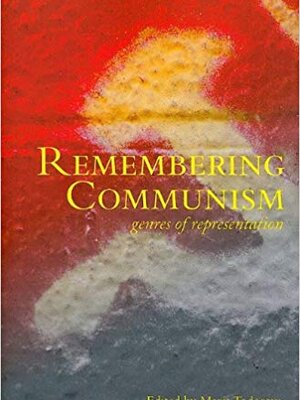
Three main fields have shaped current scholarship on Eastern Europe's communist past: institutional, especially debates concerning the characteristics of the regime; questions on resistance and opposition; and social, cultural, and everyday history. There is a particular urgency in approaching the social and cultural aspects of everyday life under the formula of "remembering communism." Remembering exemplifies a dynamic process that continually reassesses the communist experience. By favoring the term "remembering" over "memory," this book chooses a lived experience that is inflected by the exigencies of the present moment.
Dedicated to mediums of remembering (or genres of representation), this collection makes explicit the complex nature of the process. The first section traces different explanatory modes and models following the collapse of "real socialism." The second section on oral history relies on extensive fieldwork at different sites and among diverse groups, including factory workers, village inhabitants, and political émigrés. Subsequent sections provide a concrete glimpse into reassessments of the period, turning to archives, memoirs, and textbooks. The final section handles visual material: fashion magazines, cinema, and monuments. Drawing on examples from Bulgaria, Croatia, Germany, Hungary, Lithuania, Russia, Serbia, Slovenia, and Ukraine, Remembering Communism responds to, or rather apprehends the peculiarities of transforming an "objective" reality into a subjective one.